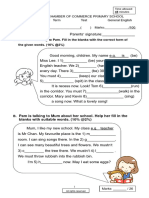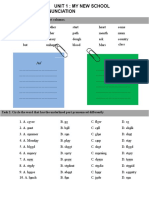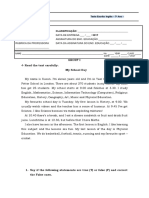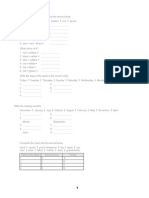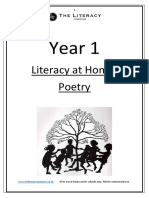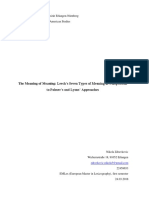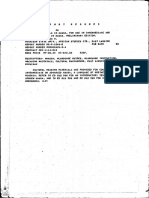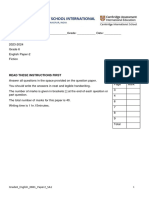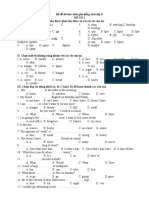0% found this document useful (0 votes)
81 views7 pagesP1 Proofreading Exercises
The document outlines the rules for using capital letters, punctuation, and the simple present tense in English. It includes exercises for correcting sentences, filling in blanks, and rewriting sentences with proper capitalization and punctuation. Additionally, it provides an answer key for the exercises included.
Uploaded by
Bernice LeungCopyright
© © All Rights Reserved
We take content rights seriously. If you suspect this is your content, claim it here.
Available Formats
Download as PDF, TXT or read online on Scribd
0% found this document useful (0 votes)
81 views7 pagesP1 Proofreading Exercises
The document outlines the rules for using capital letters, punctuation, and the simple present tense in English. It includes exercises for correcting sentences, filling in blanks, and rewriting sentences with proper capitalization and punctuation. Additionally, it provides an answer key for the exercises included.
Uploaded by
Bernice LeungCopyright
© © All Rights Reserved
We take content rights seriously. If you suspect this is your content, claim it here.
Available Formats
Download as PDF, TXT or read online on Scribd
/ 7



